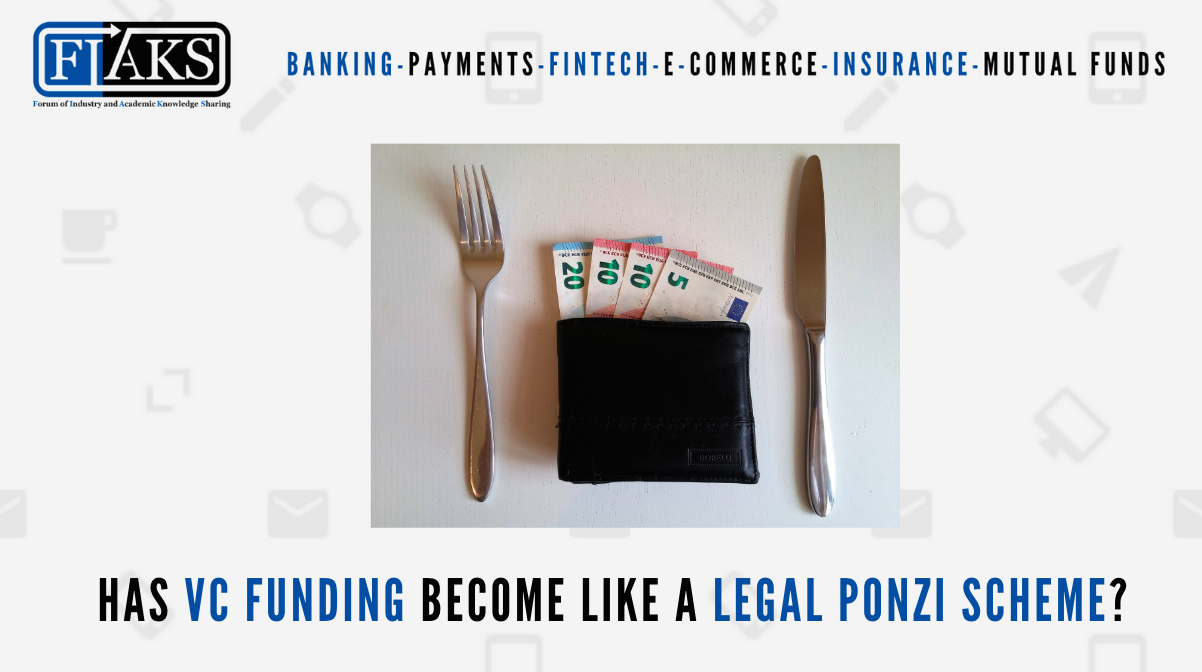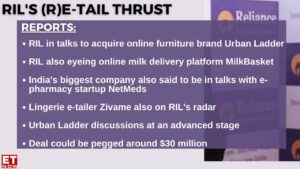Several Founders, Co-Founders, CXO Bankers, CXO Fintech professional & people who participated in the ePanel discussions:
- Mr. Kamonasish Aayush Mazumdar, Founder & CEO at Foodieverse
- Mr. Ajay B Panicker, CEO & Founder, NetPay Limited
- Mr. Amit Lakhotia, Angel Investor, BharatPe
- Mr. Shashank Kumar, Co-Founder at Razorpay
- Mr. Shailesh Varudkar, VP – Global Business Operations, Vserv
- Mr. Jayesh Shah, CEO, Prism Cybersoft Private Ltd
- Mr. Piush Kothari, Head of Business Operation, Walt Disney Direct to Consumer & International
- Mr. Sandeep Todi, Co-Founder & CBO, Remitr
- Mr. Riaz Maniyar, Founder & CEO at easy2lend.com
- Mr. Vikas R Panditrao, Co-Founder, Forum of Industry and Academic Knowledge Sharing (FIAKS)
- Many other CEO/CXO Bankers & Fintech professionals on FIAKS Forum requested to remain anonymous
Check out these prospective acquisitions of RIL;
The next few months should be interesting. Reliance’s $15 billion is worth twice that, in today’s market. The way it is looking, they will probably acquire a bunch of hyped-up startups and roll up to a $150 billion+ IPO. But if RIL stays in all verticals, what will be the data security, and won’t it be used in cross-platform juicing? The government is stopping the others from monopolies but indirectly encouraging monopoly. Isn’t it?
Also if funding dries up, most of these fancy startups can be worth nothing, very soon. Isn’t it? COVID has probably been a reality check for many! Also, no one can say anything due to fear. And if they want to buy someone they ensure that the company’s funding dries up. This is the age-old strategy. It was right from NOCIL
Has VC funding become like a legal Ponzi scheme?
- Simply put, a Ponzi scheme is a fraudulent scam wherein high rates of return on investment is promised. New investors are acquired to generate returns for the earlier investors
- Taking money from one person, to boost image & future valuation, to raise money from the next person. How exactly is this different from a Ponzi scam?
- That’s how VCs have been working for ages. So is this because of pressure? The pressure of no money/survival. Once you get money, pressure to grow/increase valuation, the focus is rarely on unit economics or profitability. Should this be a justifiable reason for doing it?
- On the contrary, a member begs to differ, he says, “9 out of 10 startups fail and 1 hit it out of the park. Repeat those statistics 10 times and you will see that pattern will keep on holding. India is no different in that regard, there is no Ponzi scheme. It’s just a new experience for us to see startups that have raised 100M plus start failing. This will become more commonplace in the future just like more mature markets.”
- Another member opines, “You can’t blame the VCs if the founders don’t get finance. I principally think founders are bad at finance, market research, etc in India and this costs them fortunes.” He further adds, if your TAM/ SAM is wrong plus you sign wrong deals with bad T&Cs, you are pretty much done. (Note: TAM– Total addressable market or total available market that is the total market demand for a product/service and SAM– Serviceable available market is the portion of TAM that is targeted and served by company’s products/services)
- A member shares this, “Citi Wired $900 Million in “Clerical Error”, They Won’t Hand Cash Back.” [1] Now it looks like legal Ponzi because of this but it is not. This is the rule of law for VC funding, not going to change much. However more prudent foresight of founders in some case definitely would help
Now, don’t you think betting on statistics based on odds like that is gambling and not investment? REGISTER and READ the complete discussions


